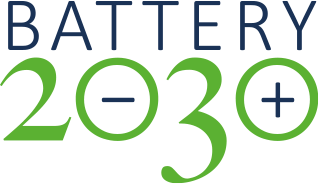
BIG-MAP, the Battery Interface Genome ‐ Materials Acceleration Platform is the largest of the seven BATTERY 2030+ projects.
The aim is to reinvent the way we invent batteries. This will lead to a dramatic acceleration in the discovery of new battery materials and chemistries. The ambition is to increase the discovery rate by at least a factor 5 relative to the current rate.
The ability to understand and control battery interfaces and interphases is essential for the development of ultra-performing, smart and sustainable batteries. The chemical space within a battery is comprised of a multitude of different elements and structures that cross influence each other. The chemical composition of electrodes, formulation of electrolytes, electrode manufacturing process, packaging, and cell aging are all examples of this. Even slight modifications in the electrode structure, the solid-electrolyte interphase (SEI) or the processing conditions can lead to a drastic change in the battery performance. The combinatorics of this space is enormous and exhaustive to explore in the lab.
If we want to accelerate the battery discovery process, today’s existing methodologies are simply not enough. A critical element is the development of an AI-orchestrated and fully autonomous Materials Acceleration Platform (MAP) that is capable of utilizing data from all domains, time- and length scales of the battery value chain. In order to do so, a shared and interoperable data infrastructure needs to be developed that is based on the FAIR (findability, accessibility, interoperability, and reusability) principles. The MAP will be unified by a community-wide battery language (the BattINFO ontology). This is a shared knowledge-based representation across all relevant scales, techniques and fields, capable of converting simulations and real-life observations to a common digital representation. This includes data from multiscale computer simulations, operando characterization, modular synthesis robotics and automated testing protocols. With this unique access to FAIR battery data,BIG-MAP will develop physics-aware machine and deep learning models that can efficiently utilize the petabytes training data to establish the Battery Interface Genome (BIG), and predict how battery materials and interfaces evolve in space and time. The aim is to create a cost-effective path to fast track inverse design of future battery materials and technologies, based on a profound understanding of the chemical and physical properties in battery systems.
To build the BIG-MAP platform is a large community effort and also needs to incorporate ways to protect IP, as well as provenance tracking of data from multiple sources. By developing a dedicated App Store BIG-MAPthan openly shares software modules, automated analysis tools and autonomous workflows bridging simulations and experiments, BIG-MAP will contribute and facilitate smart, sustainable and affordable batteries for industrialisation in Europe.
